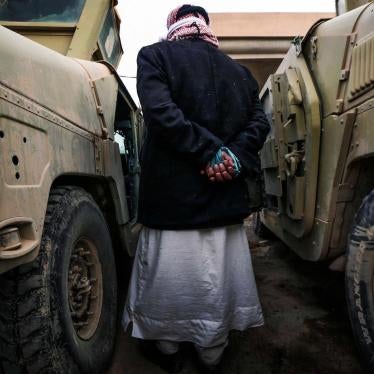For months, Libya has been preparing the celebration for the 40th anniversary of Col. Mu'ammar al-Gaddafi's coup, on September 1. Scotland's release of Abdelbaset al-Megrahi, the only person convicted in connection with the Lockerbie bombing of 1988, was supposed to be Gaddafi's ultimate international relations coup in a year when, at times, Libya held the chairmanship of the African Union and the presidency of both the UN Security Council and of the General Assembly. But Megrahi's homecoming did not go as smoothly as planned.
Saif al-Islam al-Gaddafi, the ruler's son and potential successor, needed to show that he could "deliver" Megrahi after years of Libyan diplomatic efforts. He had been scheduled to give an annual speech "to Libyan youth" on August 20. While many Libyans may have mixed feelings about him, they eagerly await his speeches because they are the only occasions in which human rights and reform are publicly discussed. When the speech was canceled, some wondered whether his influence was declining.
Apparently not. Instead of his speech, on August 20, Saif al-Islam appeared at Tripoli airport at the door of the plane bringing Megrahi home. Saif al-Islam subsequently explained that the homecoming was meant to be low-key, but it did not read well abroad. Families of Lockerbie victims voiced outrage, and the United States and United Kingdom said they found the welcome distasteful. But Washington and London also signaled that the homecoming would not jeopardize growing relations with Libya.
The response of the Lockerbie families reminded me of a demonstration in Benghazi, Libya's second-largest city, just two months earlier, on June 29. On a video posted online, I watched as women and men chanted, "We don't want money; we want our children's killers." These were families of the estimated 1,200 prisoners killed 13 years earlier, on June 29, 1996, in Libya's Abu Salim prison, which is controlled by the country's Internal Security Agency. They risked arrest and imprisonment by taking to the streets of Benghazi to call for justice.
The Libyan authorities have not revealed any information about what happened on that day. For years, these families sought in vain to find out the fate and whereabouts of their loved ones. The last many had seen of their husbands, sons, or brothers was when they were arrested, most between 1989 and 1995, and then "disappeared." As other prisoners were released, or through informal contacts with officials, some families had learned that their relatives were in Abu Salim. Slowly, information started to filter out about the massacre.
When I and other Human Rights Watch staff visited Libya in April, I met with some family members, who were taking a great personal risk to meet with me. Later on, I spoke to a Libyan man in the U.S. whose two brothers had been in Abu Salim in 1996. He told me how every three months, from the time of their arrest in 1995 until 2000, when prison visits were first allowed, his family would load up the car with clothes, food and bed linen and drive 12 hours from Benghazi to the prison, in Tripoli. Families would leave what they brought in sacks at the gates with the prisoner's name on them, counting on the guards to take them in.
"All this time we were leaving them things, in the hope that they were OK, all this time they were dead and the security guards were taking the clothes for themselves," he told me.
Only recently, after years of silence, have Libyan authorities started tentative attempts to resolve the Abu Salim issue. Their approach, however, has been typical: to offer compensation but avoid prosecuting those responsible. Last December, the authorities started issuing death certificates to the families and offering financial compensation if the families would renounce any intention to make legal claims, domestically or internationally. That indicates official awareness of the potential reach of international criminal justice today, a lesson Libya has learned through Lockerbie.
Most of the Benghazi families refused compensation on those terms, though, and took to the streets, calling on the authorities to investigate and try the perpetrators, to return the remains of their relatives for proper burial, and to make public a full accounting of how those 1,200 prisoners died.
How does a former pariah state deal with gross human rights abuses of the past? And to what extent are countries with ever-closer relations with Libya, such as the UK, U.S, and Italy, willing to support it in sweeping away the crimes of the past as well as the violations of today? Part of the answer needs to include compassion and justice for the victims of Abu Salim and their families. These nations should encourage Libya to address the past, rather than allow all to be forgiven in the name of petrodollars.
To the family of the disappeared, "every celebration, every holiday becomes a funeral because they are not with us," as one Libyan man put it to me. For families who spent all these years seeking news of their loved ones, compensation cannot substitute for the right to know and the right to a remedy that includes justice.






